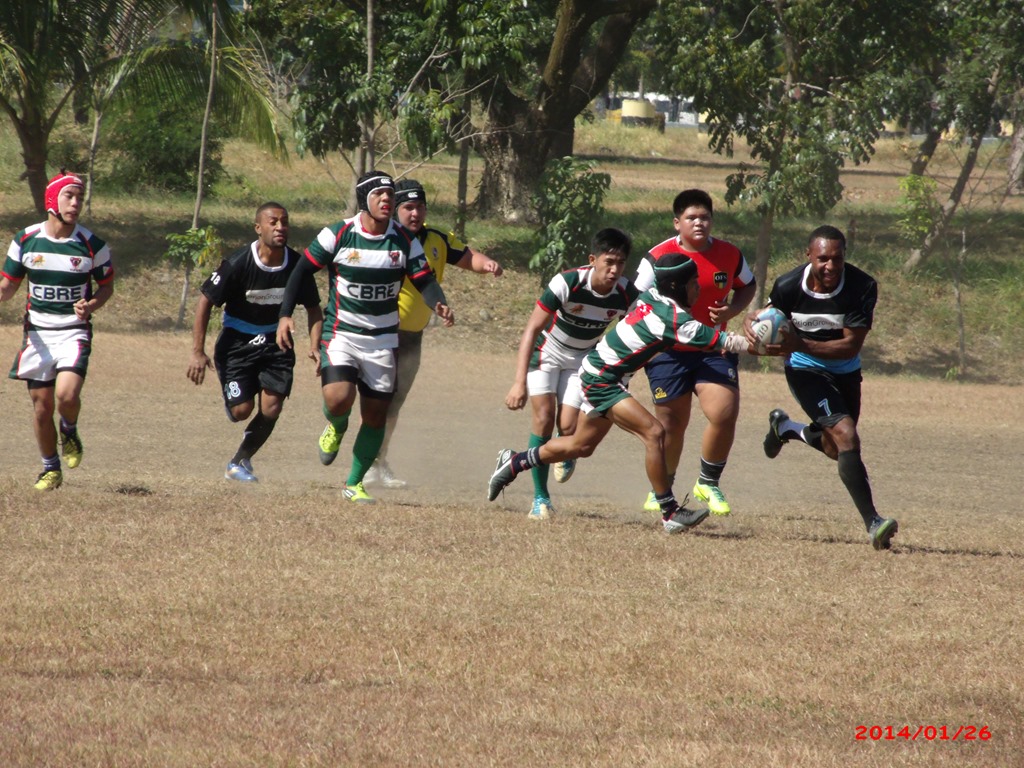(CNN) A concrete wall divides the two worlds of Paraisópolis, exposing the contrast of fortunes in the suburb of São Paulo.
On one side of the barrier, the surroundings live up to the location's meaning in English, "Paradise City" -- a grand apartment block towers over a newly-laid tennis court and a glistening blue swimming pool.
But a few meters of concrete away lies São Paulo's second biggest favela, with a population estimated at 100,000, the unlikeliest setting for a sporting feelgood story.
Deaths and drug deals are not uncommon in these streets, which are packed with 20,000 homes -- where many of the inhabitants are struggling to make ends meet.
However, in the heart of this sprawling slum lies a sporting project that is giving young athletes the chance of a better life and to one day follow in the footsteps of their idols at next month's Olympic Games, 400 kilometers to the east in Rio de Janeiro.
Some 5,000 budding players have passed through the doors of "Rugby Para Todos" (rugby for all). It was set up 12 years ago by Mauricio Draghi and his friend Fabricio Kobashi, who played at the same rugby club.
"When we started and first mentioned rugby, people would ask, 'Is that a game you play with horses?'" says Draghi, who hails from one of Sao Paulo's more affluent neighborhoods. "They genuinely had no idea. It was just a rich sport."
For 17-year-old Bianca Silva, this "rich sport" has given her the chance to represent her country in recent months although her inexperience saw her miss out on selection for the final squad at Rio 2016, where rugby sevens will make its debut.
"I got into rugby through an invite from some friends that played," she recalls of her introduction to the sport in the favela.
"My first feeling was that it was a strange sport because I'd never heard of it and I had no idea you could become an athlete, much less that I would be successful, that I would get selected by Brazil and play abroad."
Silva was from a very poor family and, when the Brazilian national team management came to agree her first contract at her home, Draghi had to help as her mother was unable even to write.
"Now she's the person that brings home money for the family," says Draghi of the rising star of the game in a South American country where players are not professionals but can earn between 1,000 and 2,500 Reals ($300-760) a month in costs.
In Silva's neighborhood, all the girls are "very proud of her," according to Draghi, who says she is deemed "the lioness of the Olympics", an accolade that has stuck despite just missing out on Rio.
The Olympics, though, remain her ultimate ambition.
"It would be a unique opportunity and a dream come true," says Silva, "an opportunity to show all the grit and determination that takes the Brazilian chest to defend their nation."
It's an aspirational story for those in poverty in the favela to find a better life, and the project's founders are confident that more will follow.
Rugby was brought to Brazil at the same time as soccer in 1894 by Charles William Miller, who had been studying in England and set up São Paulo Football Club.
Today, the round ball remains king while rugby, which has very much been living in the shadows, is beginning to thrive as the shortened sevens format prepares to make its Olympic debut.
For four years, Draghi and Kobashi ran the project as volunteers but, with the advent of funding from a government initiative taxing companies to pay for sports-related ventures after Brazil won the right to host the continent's first Olympics, they are full-time and things have snowballed.
"If someone had said rugby will be in the Olympics in Brazil when we started, I would have said 'You're dreaming,'" Draghi admits. "Without the Olympics, we would have been struggling. Now we're living that dream.
"There's a sports law in the government to fund social projects, so without the Olympics we would be nothing."
"But more than the sports results, what brings more pride for me is to see that the kids are absorbing so well the rugby values, taking it out of the field and spreading this positive culture into the whole favela of Paraisópolis.
"Rugby is a culture that will stay forever in this community and it is a model to reach and help many others."
Fuente: edition.cnn.com
